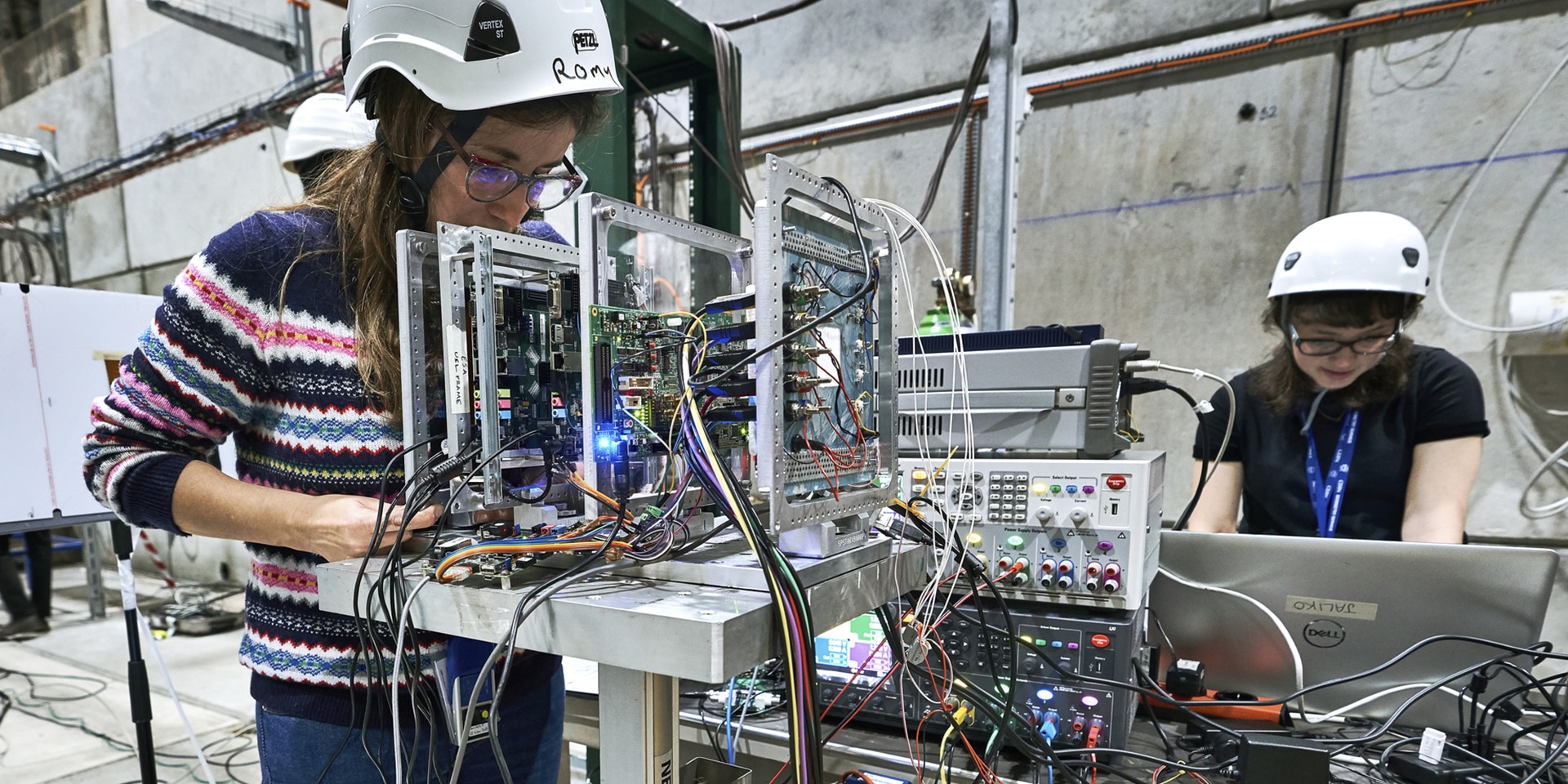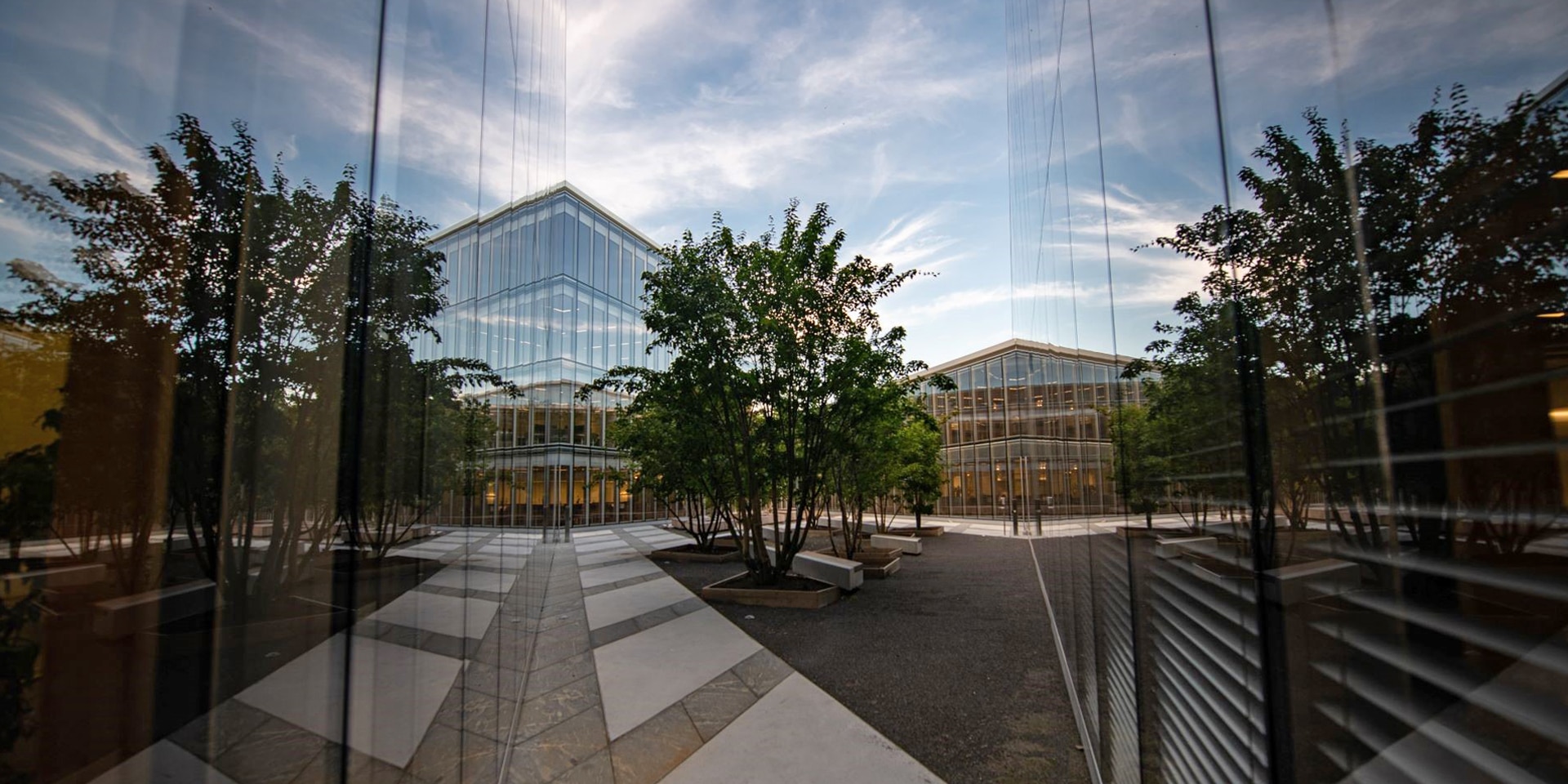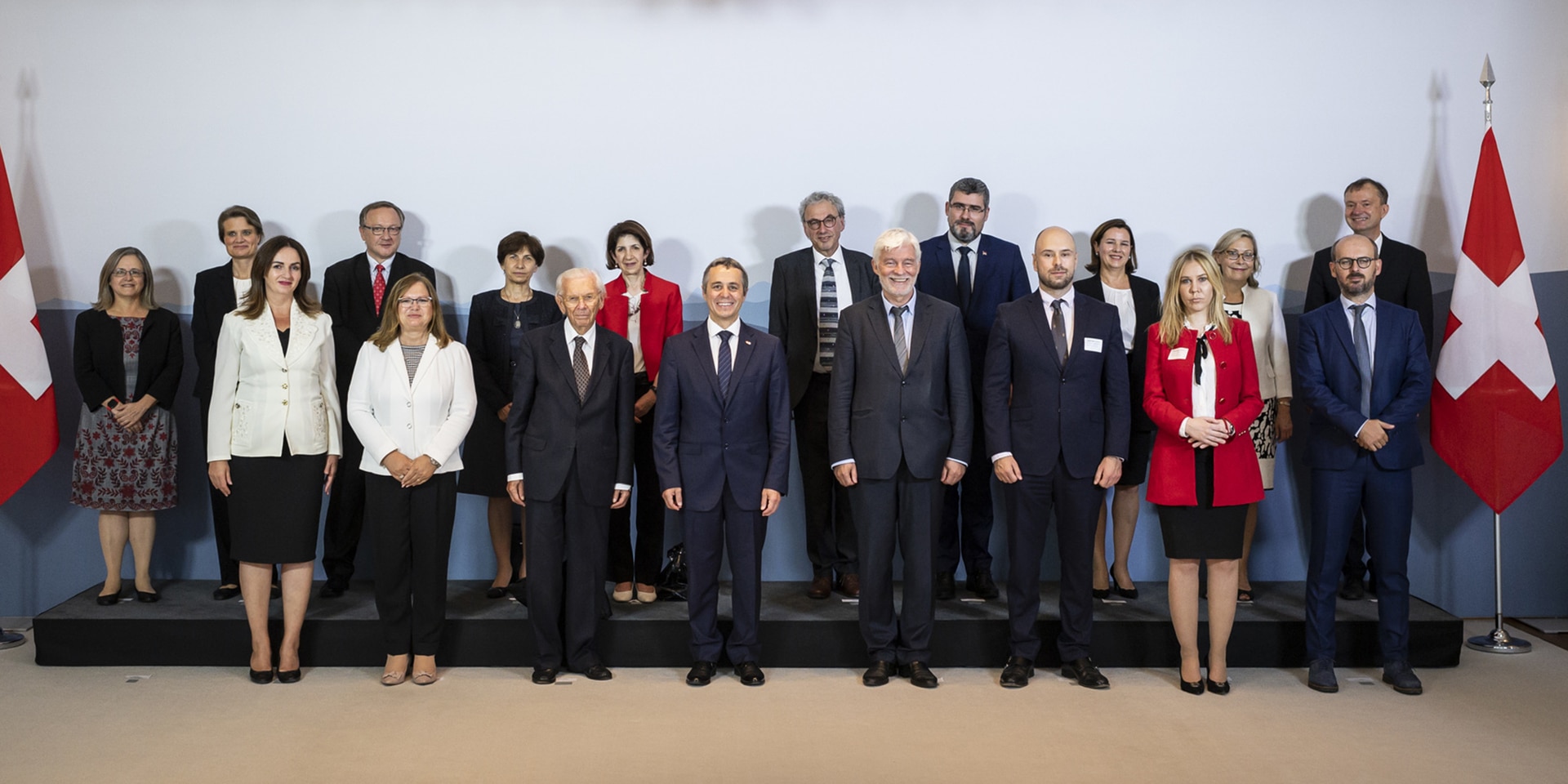"We need to keep Earth's orbits safe for essential applications"
Weather forecasting, transport systems, energy and financial transactions – space technologies keep us safe and are drivers of prosperity. Switzerland is committed to the peaceful, safe and sustainable use of outer space. Natália Archinard represents Switzerland in the UN Committee on the Peaceful Uses of Outer Space (COPUOS). We asked her about the challenges here on Earth and in outer space.
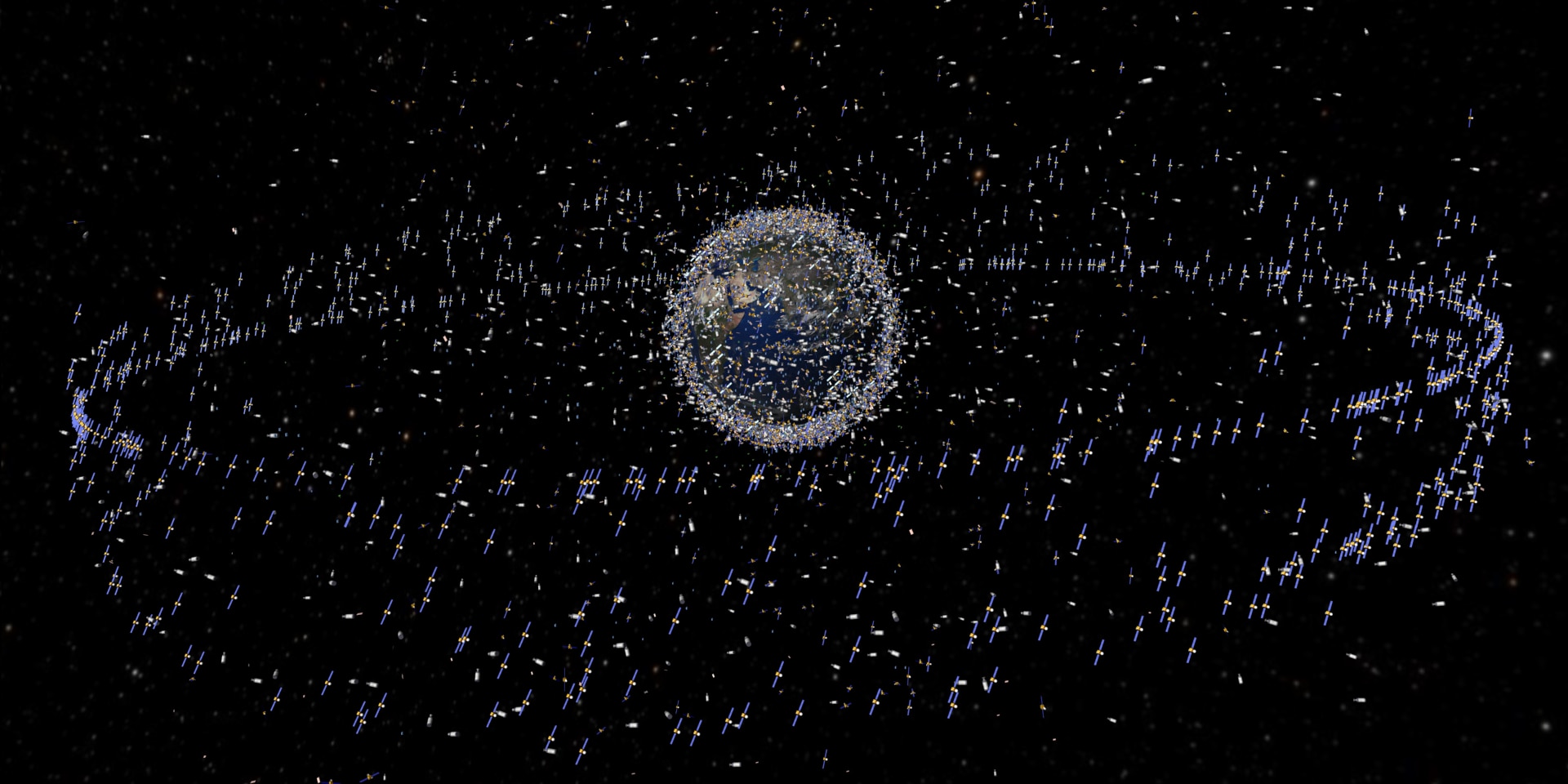
To prevent collisions we need global coordination between outer space actors. © ESA
Natália Archinard, why is there a UN Committee on the Peaceful Uses of Outer Space (COPUOS)?
The United Nations has been involved in space matters since the launch of Sputnik, the first satellite in 1957. Space activities raised political, technical and legal questions that needed to be discussed at a multilateral level. With the expanding use of outer space, it has become increasingly important to protect the Earth's orbits so that everyone can benefit from satellite technologies and to ensure sustainable development. Satellites provide vital information, data and services that contribute to our prosperity, economy and security. In addition, the strategic importance of outer space is increasing, and not only for military reasons – also commercially and with the prospect of human exploration missions to the Moon and Mars.
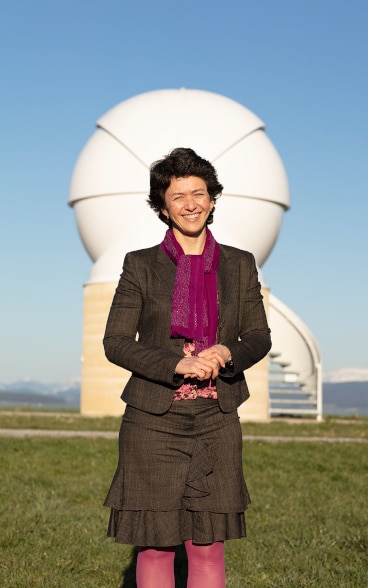
Natália Archinard is deputy head of the FDFA's Science, Transport and Space Section and works in the area of space diplomacy. She represents Switzerland in the UN Committee on the Peaceful Uses of Outer Space (COPUOS). From February 2020 to February 2022, she chaired the COPUOS Scientific and Technical Subcommittee on behalf of Switzerland.
Switzerland ratified all of the UN space treaties except the Moon Agreement between 1969 and 1978. Does Switzerland also have a national law governingspace activities?
Switzerland was a founding member of the European Space Agency (ESA) and does not have a national space programme, so for a long time virtually all of Switzerland's space activities were handled through ESA. In 2008, the Federal Council agreed on the revision of Switzerland's space policy. Inter alia, a national legal framework should be developed if deemed appropriate. In Switzerland there is now a growing number of institutional and private actors involved in the space sector. Just last month, the Federal Council decided to revise Switzerland’s 2008 space policy and to draw up a draft bill on space activities. This is good news for us. The FDFA has been advocating this for some time.
What are the FDFA's goals and interests in outer space?
The FDFA advocates internationally for the peaceful, safe and sustainable use of outer space. This commitment is firmly anchored in Switzerland's foreign policy and in its space policy.
In COPUOS, of which it has been a member since 2008, Switzerland works for better cooperation and improved governance of space activities. It contributes scientific expertise and helps build consensus around common standards and guidelines – Switzerland has earned a good reputation as a bridge builder also in space diplomacy.
At the UN General Assembly and the Conference on Disarmament, Switzerland supports multilateral dialogue and the development of common solutions and norms for example to prevent an arms race in outer space and to promote responsible behaviour.
How can space contribute to achieving the 2030 Agenda for Sustainable Development? Do you have any examples?
Space technologies and satellite data promote global prosperity and are also drivers of digitalisation. Satellite technologies serve virtually every goal of the 2030 Agenda.
Global health for example. Thanks to satellite communications, patients can access professional medical support or receive a diagnosis even in remote areas. Satellite imagery is also essential in the prevention of tropical diseases transmitted by mosquitoes, whose spread is influenced by environmental factors.
In the field of climate change, about 40% of essential climate variables can only be measured by satellite. Satellite data also allows us to observe long-term trends such as glacier melt and deforestation over many years, which would otherwise be impossible.
Satellite technologies also promote food security. Satellite data can provide information about the potential yield of a particular field, which helps then farmers to decide what to plant where and when. The RIICE project is an SDC-supported initiative in southern India that uses such technology and provides compensation in the case of loss of crops.
Where do you see the greatest future challenges and dangers in the use of outer space?
States and private actors alike are making ever more intensive use of outer space. The number of satellites is growing uncontrollably. Five years ago there were 4,000 and now there are 8,000 – the number has doubled! A lot of debris from rockets and old satellites also remains in orbit, which increases the risk of collisions. Unfortunately, we do not yet have the technology to remove this space debris.
International coordination is therefore needed to keep the risk of accidents in Earth's orbit as low as possible. COPUOS has developed guidelines, but further progress is needed. Certain states do not want new binding rules because they want to retain their freedom to pursue military and commercial activities in outer space. The use and commercialisation of space resources is a sensitive issue. Outer space has become highly strategic; it is used to provide support for military activities and satellites are becoming targets.
Have you ever been to space or are you planning a trip?
No, I've never been to space. In 2008, I applied to the ESA astronaut selection. Unfortunately it didn't work out, but the selection process itself was very interesting. Rapid strides are being made in space tourism, but personally I would rather help keep the Earth's orbits accessible for essential uses to promote a sustainable and peaceful Earth.
Foreign Policy Strategy (FPS) 2020–23 and the new Arms Control and Disarmament Strategy 2022–25
Switzerland's commitment to global governance in space is in line with its Foreign Policy Strategy and the new Arms Control and Disarmament Strategy 2022–25. In today's volatile international context, Switzerland strives to build bridges for peace, security and sustainability also in space. To do this, it promotes the development of common standards, guidelines and norms for space activities to ensure that Swiss society, the private sector and government institutions can continue to benefit from access to space and space-based services for a long time to come.

